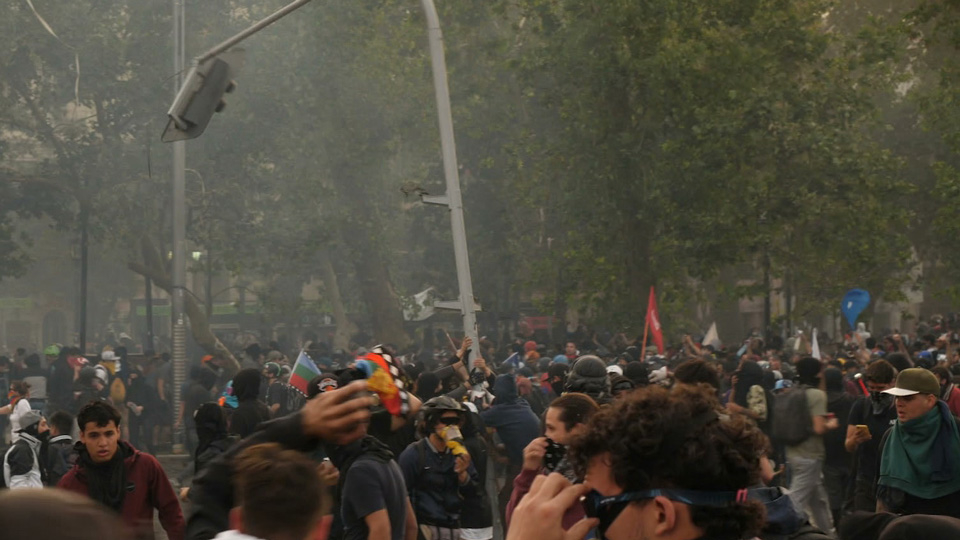In Santiago, Chile, protesters have looted a Roman Catholic church dragging pews and statues into the street and setting them on fire. A fire also broke out at a nearby university.
Estimates say three weeks of unrest in the country have caused more than $1,000,000,000 worth of damage.
But as CGTN's Joel Richards reports, it hasn't stopped Chileans from supporting the demonstrators.
02:17

The protests in Chile started after the government hiked metro fares. But they quickly grew into one of the country's largest demonstrations in years. As many people here say, it is not about 30 cents, it's about 30 years.
Large parts of Santiago are boarded up, the capital bearing the scars of weeks of violent protests.
The National Museum of Fine Arts in Santiago is covered in graffiti, like much of the rest of the city. The museum is closed, the workers have gone on strike and they have added a line onto this sign on the front gate which really goes to the very heart of what these protests in Chile are about. It reads hasta que la dignidad sea constumbre which means until dignity becomes a habit.
Seventy-five-year-old Washington Wilson paid into a private pension fund for years. Now he receives roughly $200 a month. It barely covers the cost of medicine for his heart condition. He says the privatized pension funds are profiting from people like him.
The sense of injustice at the situation facing Chile's older generation is one of the reasons behind these protests.
Nearby Wilson's house, a supermarket burned-down. Vandalism is estimated to have cost the country well over a billion dollars.
Yet surveys show more than 70% of the population supports the protests that are demanding change.
Investigators at the Fundacion Sol, a nonprofit research organization, point to World Bank data that shows the wealthiest one percent in Chile has 33% of the national income. It's a concentration of wealth not seen anywhere else in the world.
"There are people who work full time at a company in Chile yet who are very likely to be living in poverty with their family. That is one of the contradictions in a country that says it is one of the economic miracles in the region," said Benjamin Saez, an investigator of Fundacoin Sol.
The government has announced a series of policies such as increasing the minimum wage and reducing the number of working hours which are intended to appease protesters.
But for many here it's too little too late. Chile has long been considered a model of economic and social success in Latin America. And now Chileans want to be part of that success.